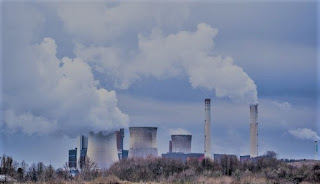Experts say there's a relationship between pollution and depression
Depression is one of the most frequent mental health diseases, according to doctors. According to data, more than 7% of people in the United States suffer from serious depressive illness on an annual basis. Researchers are continuously striving to learn more about this component of the condition, despite the fact that there are numerous complex reasons. So far, we've established a link between air pollution and depression. According to a new study, this illness may be connected to pollution. Let us learn more about it.
In Beijing, researchers conducted a study with the assistance of a group of healthy volunteers. This is one of China's most polluted cities, in case you didn't know. To put it another way, this city has the greatest degree of pollution in the country. Researchers chose this city to conduct their investigation because it has a high degree of pollution.
To gain a better picture of the volunteers' exposure to fine particulate matter, experts used air quality sensors. Following that, all of the individuals were assessed for various indicators of depression. They were also assessed for their cognitive abilities. Their goal was to see if low air quality has a negative impact on their cognitive performance.
They discovered that poor air quality had a significant impact on people's moods and cognitive abilities. Furthermore, researchers discovered a mechanism that may cause people to become depressed when exposed to pollution. They intended to learn as much as they could from this trial.
Aside from that, researchers discovered that those with a genetic tendency are more likely to acquire a condition if they are exposed to dirty air for an extended period of time. The problem is that air pollution may have a negative impact as well.




0 Comments